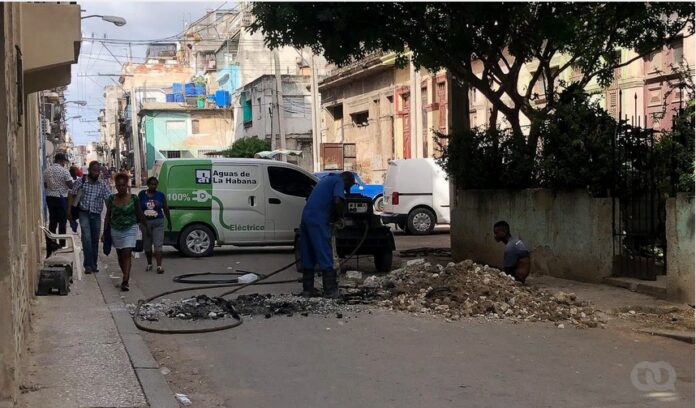Where are the investments going?

By Ernest Eimil (El Toque)
HAVANA TIMES – Despite constant reports of investments in hydraulic resources, an average of more than one million Cubans (around 10% of the total population) had difficulties accessing running water in mid-September 2024, according to official data.
State media frequently report on investment figures aimed at improving access to water. However, these actions do not seem to alleviate the crisis. “Many things have been done, but people do not see the impact,” admitted Ines María Chapman, Deputy Prime Minister, during a visit to Pinar del Río.
At the end of May 2024, it was revealed that Kuwait contributed 102 million dollars to the island to improve the operation of the national hydraulic resources system. The money was arranged into five loans, and —according to Antonio Rodriguez, president of the National Institute of Hydraulic Resources (INRH)— 84.7% of it had been executed.
The Kuwait Fund for Arab Economic Development has been providing funds to Cuba since 2003. Rodriguez stated that all the loans had been used in projects in Santiago de Cuba, Holguín, and Havana. Rodriguez also mentioned ongoing projects in sewage and sanitation in the capital, as well as a comprehensive solution to flooding along the Malecon boardwalk.
In March 2024, Granma reported that investments had not stopped. The official Communist Party newspaper announced that more than 67,000 Cubans had benefited from new water connections. Fernando Perez Gomez, INRH’s Director of Infrastructure, pointed out deficiencies such as the lack of construction materials to complete the works.
These statements are very similar to those made by officials of the same entity ten years ago to the same media outlet. In 2014, water losses from pumping through the conduits were 16%, and 20% through the networks. In 2024, the numbers do not seem to have changed much.
Supposedly, the INRH is implementing five investment programs in stages until 2030. These programs claim to take into account the country’s priorities and focus on expanding aqueducts, water treatment and desalination plants, sanitation, storage, water transfer and protection, and hydrometry.
According to a television report, in Pinar del Río, some investment projects have failed due to defects in construction and execution.
Subsidies also do not seem to alleviate access problems. In June 2021, the French Embassy in Cuba provided INRH with 6 million euros for the “Unaccounted-for Water” project to improve water supply services in the city of Matanzas. The project was funded by the European Union’s Latin America Investment Facility and was intended to complement the 22.7 million allocated for the reconstruction and rehabilitation of water supply networks damaged by Hurricane Irma.
No further information about the program could be found online, and there are no records of it on European Union’s Latin America Investment Facility websites, which track such investments.
Since 2016, France has committed 138 million euros to implement sanitation and water access projects in Cuba.
Water Access Crisis
A report published by Cuba’s National Television News stated that Havana faces a critical water shortagemor.
The situation in the capital is particularly difficult in the central and western municipalities, with La Lisa being the hardest hit. Leonardo Romero Soto, the INRH delegate in Havana, said that the average daily supply in the city ranges between 70 and 79 water trucks. But this is only a temporary measure.
Havana is not the only province with water access issues. Recent media reports indicate that Matanzas, Pinar del Río, and Santiago de Cuba are also affected. Given the current state of the distribution system and the functioning of hydraulic resources, practically the entire country is vulnerable to water shortages.
The company Aguas de La Habana explained that the water supply has been affected by a combination of blackouts and adverse weather conditions. According to the INRH, power cuts cause failures in pumping equipment, leading to service interruptions.
Romero Soto noted that there are more than 2,000 leaks in Havana alone. More than 40% of the water pumped in Cuba is lost due to these leaks. Authorities reported that they are working on maintaining and repairing the damaged equipment that supplies water.
In September 2024, the lack of regular access to running water led to protests in Havana. On September 3, some residents of San Miguel del Padrón blocked streets in protest. “We want water!” chanted the residents in the early morning. A poll conducted by authorities revealed that 90% of Cubans are unsatisfied with governmental management of water resources.
First published in Spanish by El Toque and translated and posted in English by Havana Times.
Read more from Cuba here on Havana Times.




